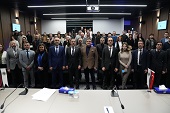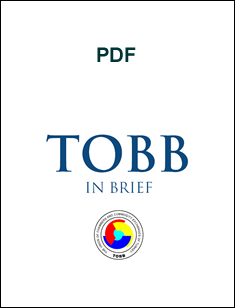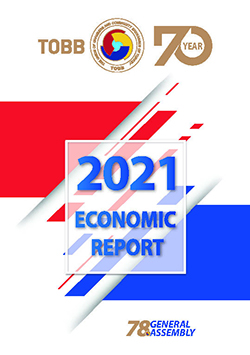Green Transformation and Border Carbon Regulatory Mechanism Information and Consultation Meetings

25.01.2024 /
The information meetings planned to increase the capacity development and awareness among the industrialists of our country on green transformation and Border Carbon Regulatory Mechanism (BCRM) within the scope of combating climate change started in Eskişehir and Denizli provinces.
Nearly 120 representatives participated in the “Green Transformation and Borderline Carbon Regulation Mechanism Information and Consultation Meetings” hosted by Eskişehir Chamber of Industry and Denizli Chamber of Industry under the coordination of the Climate Change Presidency and TOBB, while this number reached 150 in Denizli.
The meetings were attended by officials from the Climate Change Directorate of the Ministry of Environment, Urbanization and Climate Change, the Ministry of Trade, the Turkish Standards Institute, the Union of Chambers and Commodity Exchanges of Türkiye and the Development and Investment Bank of Türkiye.
Representatives of relevant institutions and organizations provided information on the GCCM, the Greenhouse Gas Monitoring, Reporting and Verification (MRV) System in Türkiye, the relationship between the Emissions Trading System (ETS) and the Border Carbon Regulation Mechanism, and Carbon Footprint Calculation Standards.
Representatives participating in the meeting were informed about the mandatory and voluntary area practices implemented in Europe and the greenhouse gas emission monitoring legislation in our country. In this context, in order to prevent the industrialists from being misled with manipulative information, the subject was clarified with both presentations and question and answer sections after the presentation.
On the other hand, detailed presentations were made on the possible risks awaiting our country's exports by evaluating the SDCC from many aspects that will affect our industrialists. In addition, our industrialists were informed about green financing opportunities by the Development and Investment Bank of Türkiye.
Reminding that a reliable, facility-based online data management system was established to monitor greenhouse gas emissions, the representatives of the Climate Change Presidency stated that thanks to this system, which has been maintained since 2015, the greenhouse gas emission data of approximately 750 facilities are currently being regularly monitored. It was informed that approximately half of Türkiye's total greenhouse gas emissions are being monitored.
In addition, the quality of the verified greenhouse gas emission reports of the facilities covered by the “Regulation on Monitoring of Greenhouse Gas Emissions” is of great importance for the “National Emissions Trading System” to be established and information was given about the work carried out by the Presidency to make the data in the system more accurate and reliable.
It was stated that there was an understanding that carbon pricing under the EU ETS would lead to cost increases in energy-intensive sectors with high greenhouse gas emissions, leading to the risk of firms shifting their production to countries whose efforts to combat climate change are not at the EU level (carbon leakage risk).
In this framework, it was stated that the SCCM is a mechanism to replace the free allowances provided within the ETS to prevent the risk of carbon leakage. It was stated that free allowances will be phased out gradually, while the ESDM obligations will be introduced proportionally.
It was explained that the rights arising from special trade agreements between the European Union and Türkiye are being negotiated before the EU, and that effective work is being carried out under the coordination of the Ministry of Trade to ensure that our country is minimally affected by the SDCC. It was emphasized that the preparation of sustainability reports by facilities above a certain capacity will be advantageous in financing opportunities.
At the meeting, which was held with the wide participation of the representatives of Eskişehir Chamber of Industry, Denizli Chamber of Industry and Denizli Chamber of Commerce; detailed information was given by the Climate Change Directorate, Ministry of Trade and Turkish Standards Institute on climate change awareness, IRD legislation, differences and obligations between ETS, carbon footprint and SDCC. In addition, presentations were made on the applications of the relevant standards on the carbon footprint of the organization, product carbon footprint, life cycle analysis.
The meetings are planned to continue in various provinces in the coming period.
Your message has been sent
Thank you |




